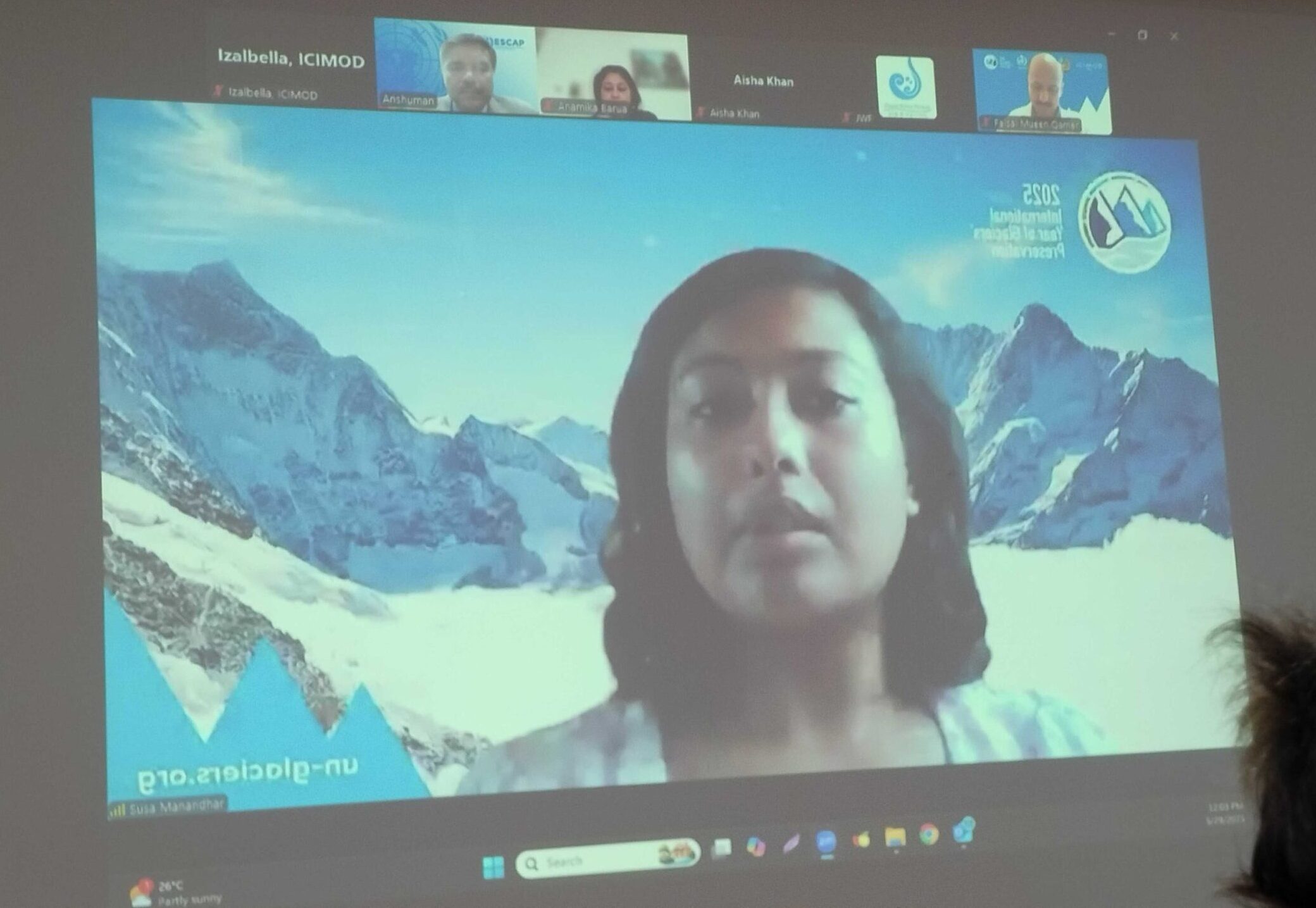As a part of the Australian Embassy’s Public Diplomacy and Alumni Activity, The Small Earth Nepal (SEN) in collaboration with Shree Bishwamitra Ganesh Secondary School (SBGSS) and Days for Girls Nepal (DFGN) conducted the one-day online training on “Menstrual Health Hygiene and Management” on 29 July 2021. The 4-hours long training was a major part of the project entitled ‘Promoting menstrual health and hygiene practices and management among the adolescent girls of a community school in Lalitpur’. The training was arranged in order to enhance the knowledge of the participants, especially school students both girls and boys, on MHM and sanitation.
There were altogether 150 participants, who were school students, teachers, management committee members from SBGSS, parents, volunteers, undergraduate, and graduate students, and early career professionals, and trainers. The training was a combination of introduction, technical, and discussion sessions. Moderated by Mr. Niranjan Bista (Project Coordinator at SEN), the introduction session of the training began with a welcome speech by Mr. Thakur Prasad Upadhaya (Principal of SBGSS). Following this, Dr. Dhiraj Pradhananga (President at SEN and an Australian Awards Alum) summarized the overall strategies, plans, and objectives of the project to all the participants.
Next to present was Ms. Ananya Joshi, a volunteer at SEN. Ananya shared her experiences of how she became aware of and received education on menstrual hygiene, management, and cycles during her higher schooling in Australia. She further highlighted the differences in the contexts and thought processes of both Nepali and Australian people regarding menstruation. The New Colombo Plan Fellow for Nepal, 2021 and a Research Associate at SEN, Mr. Liam Holt shared his presentation on the theme ‘The Politics of Feminine Hygiene Management in Nepal and Australia’ where he discussed the importance of feminine hygiene management along with some excellent examples. Mr. Holt drew attention to reproductive health education, period care products, the stigma around menstruation, cultural norms and beliefs, reproductive justice, challenges, and strategies for feminine hygiene management advocacy in Nepal and Australia. Ms. Aashna Shakya (Senior Research Associate at SEN) translated the presentation to Nepali.
Ms. Maya Khaitu (Country Director of DFGN) began her presentation by giving a brief introduction on DFGN objectives and goals. She demonstrated the use of a menstruation kit to all the participants. She discussed the following topics in detail.
- Menstruation health hygiene and sanitation
- Menstruation cycle
- Females and males reproductive organs
- Females and males reproductive cycles
- Physical/sexual abuse and self-defense
- Types and ways of using sanitary pads
- Disposal of pads
- Human trafficking
With the overview of menstrual health hygiene and management, a breakout session allowed the participants, mainly the school students, to discuss openly and without hesitation, the topics presented on and they provide very positive feedback regarding the training day. The training was summarized by Mr. Thakur Prasad Upadhaya and Mr. Rabindra Kumar Thapa (Vice Principal, SBGSS) and concluded with a closing remark by Dr. Dhiraj Pradhananaga.
The team has planned to host a follow-up training program at the school if possible considering the COVID-19 pandemic.






